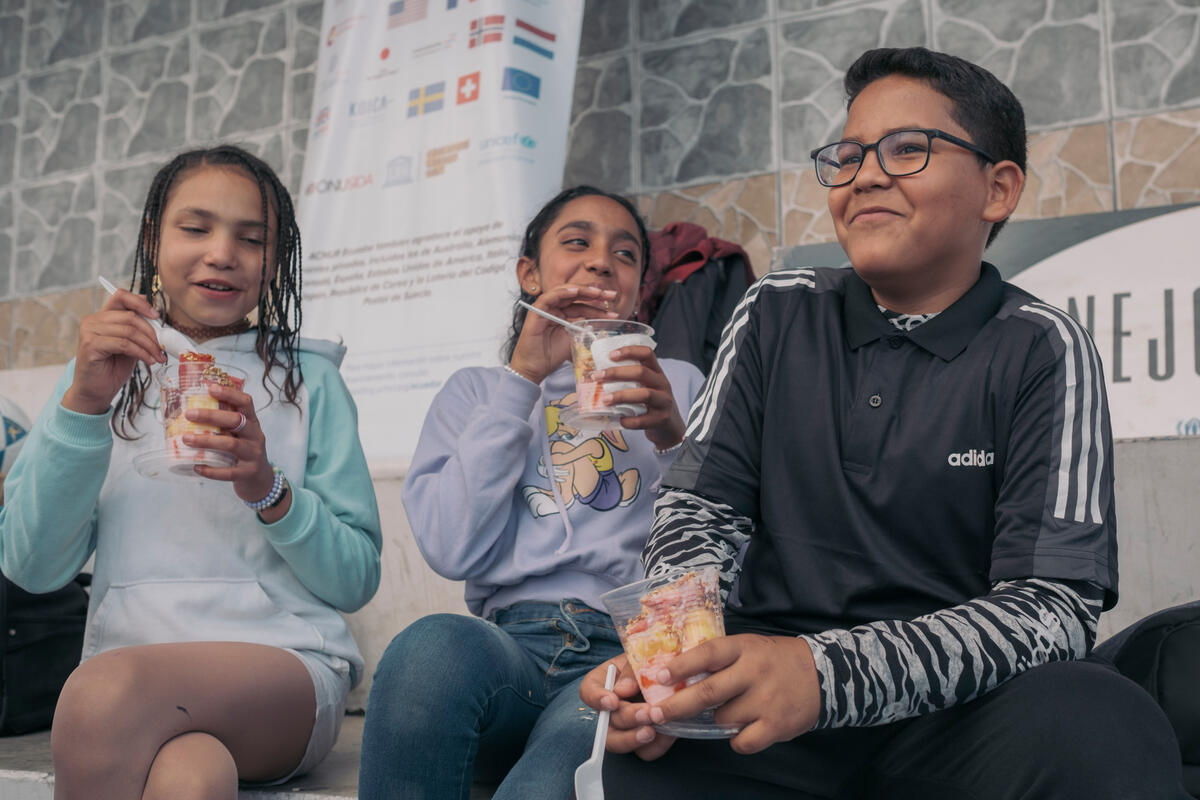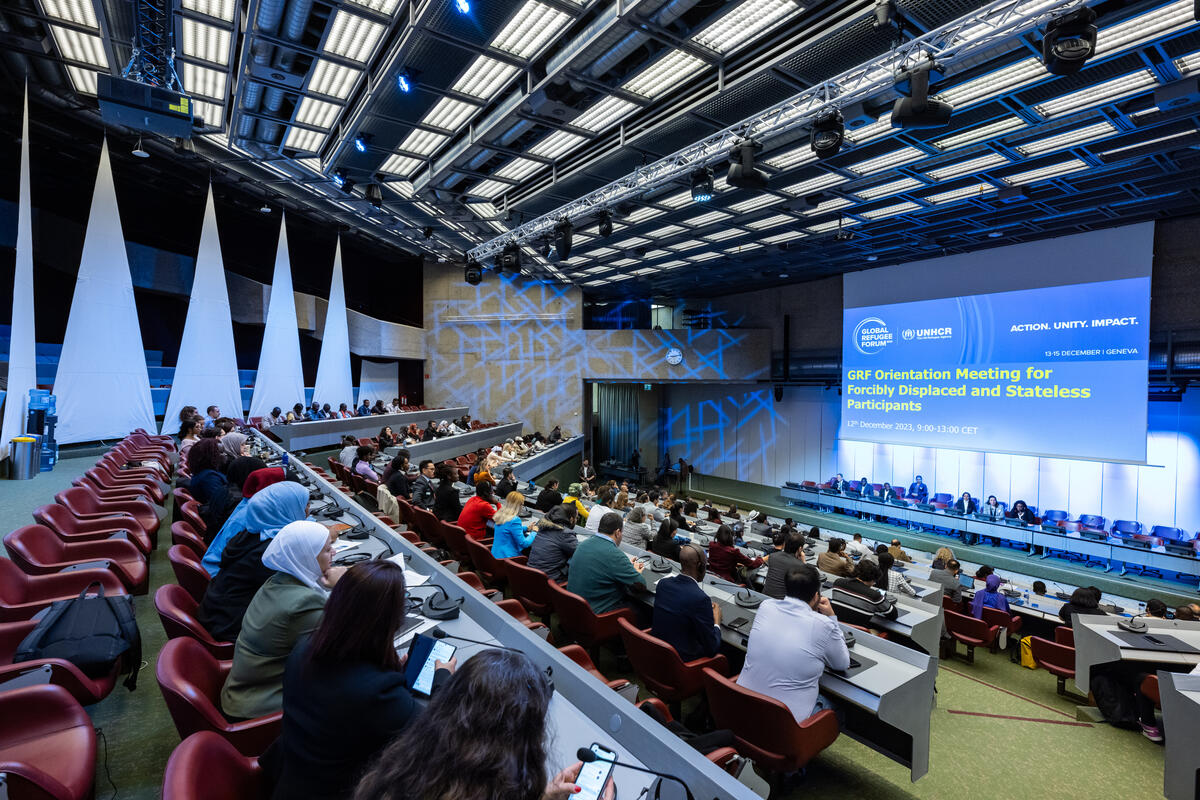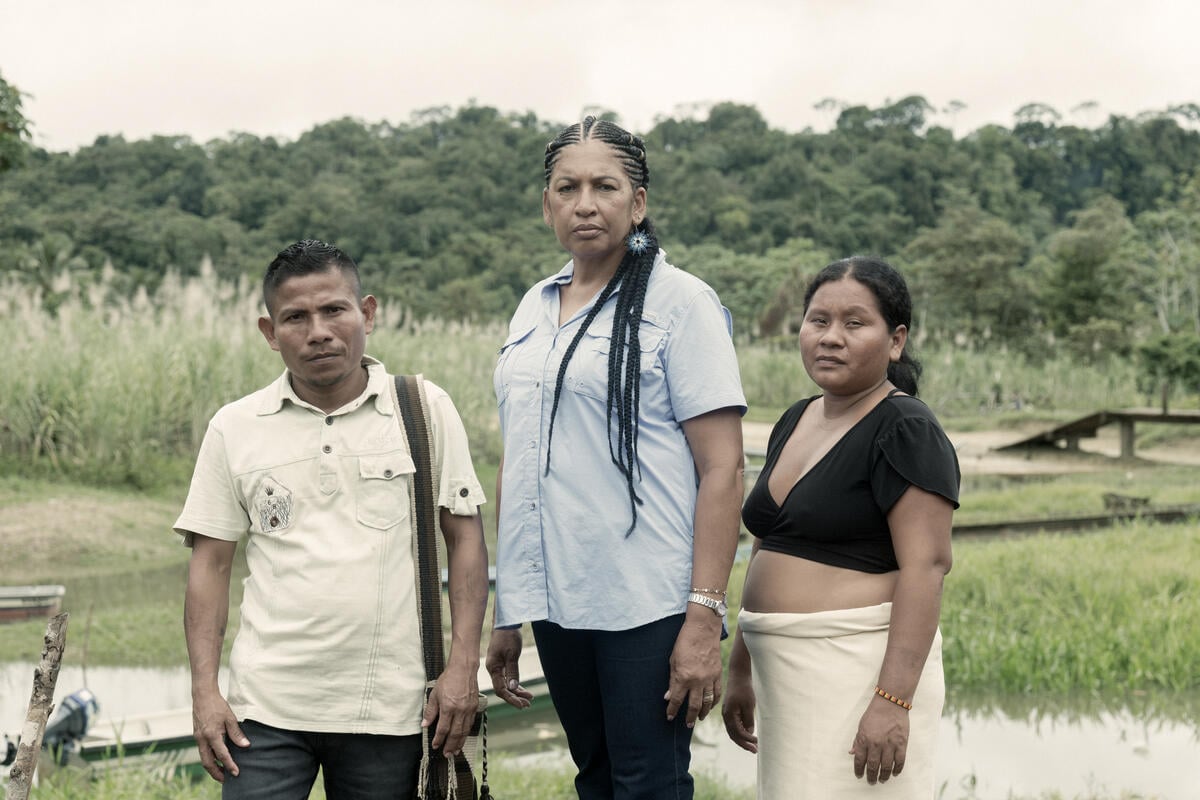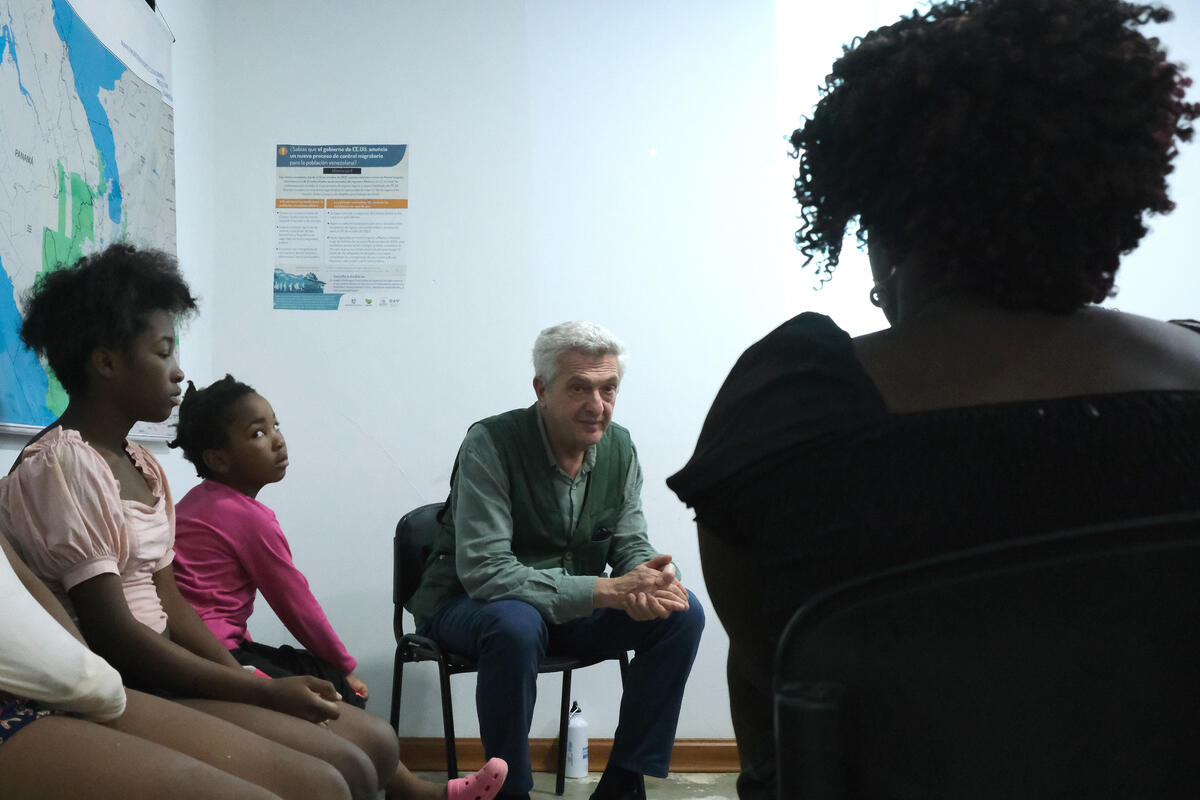Micro-credit schemes unite Colombian refugees with Ecuadorian hosts
Micro-credit schemes unite Colombian refugees with Ecuadorian hosts

QUITO, Ecuador, December 29 (UNHCR) - Jairo Martinez is stacking the shelves of a brand new shop in Quito's Solanda neighbourhood as quickly as he can with rice, sugar, oil, pasta and a few sweets for the children. Outside, colleagues are decorating the shop's entrance with balloons and colourful garlands under the watchful eye of the local residents.
For Jairo Martinez, a Colombian refugee who arrived in Ecuador two years ago, the shop's opening is the realisation of a long-held dream. "When you come to a new country, the question of how you are going to make a living is constantly on your mind," he says. "Any help is a blessing, but it is much, much better if you are given tools to build something through your own efforts," he concludes just as the doors of the Integration for Progress shop open to the public for the first time.
Like many of his fellow refugees, Jairo Martinez made every effort to adapt to his new life in Ecuador from the first day he arrived - a tall order when experiencing not only the trauma of losing everything, but also the prejudices and mistrust that often confront refugees in their host countries.
Spurred on by his desire to integrate as quickly as possible, Jairo soon signed up with the Community Credit Banks, a project set up jointly by UNHCR and the Fundación Ambiente y Sociedad (FAS) to provide loans for both Ecuadorians and refugees. The idea behind the Community Credit Banks is to help people bring their business projects to fruition, while at the same time encouraging harmonious cohabitation between refugees and Ecuadorians as a result of working together towards a common goal.
The project gave Jairo the chance to secure an income for himself. Equally, if not more importantly, it also stimulated an environment that encouraged him to share his concerns and ambitions with other Colombian refugees - and also with local Ecuadorians.
"The Community Credit Banks make it possible for Ecuadorians and refugees to relate to each other," explains UNHCR's Programme Assistant Angel Granja. "By putting forward joint projects they realize they have the same needs, regardless of their nationality. Each group has to build a relationship of trust. It's the only way they can gain support for their projects."
The Integration for Progress shop is proof of what can be achieved when 35 people, all of whom had already succeeded in financing their own individual projects, decide to apply themselves to a collective goal. For 18 months, they worked as a team and received training from the Fundación Ambiente y Sociedad in accounting, administration and marketing. All their learning and experience was needed to get their new business off the ground - from the design of the premises and the purchase of supplies, to the management of funds and customer service techniques.
The shop is located in the Solanda neighbourhood of Quito, where large numbers of Colombians have settled in recent years. It is Quito's most crowded neighbourhood, and one of its poorest, with high crime rates and a shortage of basic services.
"We cannot blame foreigners for all our difficulties," says Nube Rivera, President of the Committee for Improvement of Solanda. "We can only improve our lives if everyone participates - Ecuadorians and Colombians. We must be united, and in order to unite we must push ourselves to overcome mistrust. With the opening of this shop, we have a new opportunity to get to know each other even better, through our daily lives."
More than one hundred projects have received funding so far from the micro-credit system - small businesses such as making and selling handicrafts, fast food, carpentry and furniture-making, among many others. One of the main goals for the coming year is to encourage more collective proposals like the one in Quito, turning the initiative into an example for other groups around the country supported by the Community Credit Banks project.
"Right now, we are planning seven more projects, including a bakery and an internet café, but we want to wait and see how the shop goes first," says Jairo Martinez. "Our greatest ambition is to become a savings and credit cooperative bank. However, what we need is to include more partners with a will to improve things and move forward."
By Salomé Eguez in Quito, Ecuador








